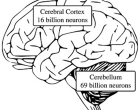Larry Vandervert is a retired college professor and has published and edited works in the neurosciences, creativity, innovation, child prodigy giftedness, and science in general.His major research interest is in how, through practice, and in collaboration with the cerebral cortex, the cognitive and social functions of the brain’s cerebellum constantly optimize both mental and behavioral performance.In his publications he has applied the findings of recent brain-imaging studies of the cerebellum to creativity (2003, 2007, 2015, 2017, 2019, 2020, 2022), the evolution of language (2011, 2018), of culture (2016, 2022), of child prodigies (2016, 2022), of play (2017), and the cerebellum’s prominent role in the rise of Homo
sapiens (2018, 2022).The cerebellum’s prominent role in creativity appears in the
Encyclopedia of Creativity (3rd ed.) (first available late December, 2018). Dr. Vandervert is a Fellow of the American Psychological Association since 1992 (retired), and now writes under the egis of American Nonlinear Systems.He presently lives in Spokane, WA, USA.
Professor Vandervert argues that the cerebellum refines the brain’s knowledge of all cause-and-effect relationships related to movement, thought, social behavior and emotion.He proposes that sequence detection in the cerebellum more than any other brain process led early humans to stone-tool manufacture, then to advances in technology, and to science.In other words, it is the cerebellum that provides the breakthroughs (often experienced ad insight and intuition) necessary to the creativity behind the rise of Homo sapiens as well as the continual advances of the technological, scientific, mathematical, artistic and political aspects of their cultures throughout history.
For the latest in-depth social-cognitive cerebellum research and to learn more about Dr Vandervert’s work, visit
his page here and find out more about the newly published book
The New Revolution in Psychology and the Neurosciences.


